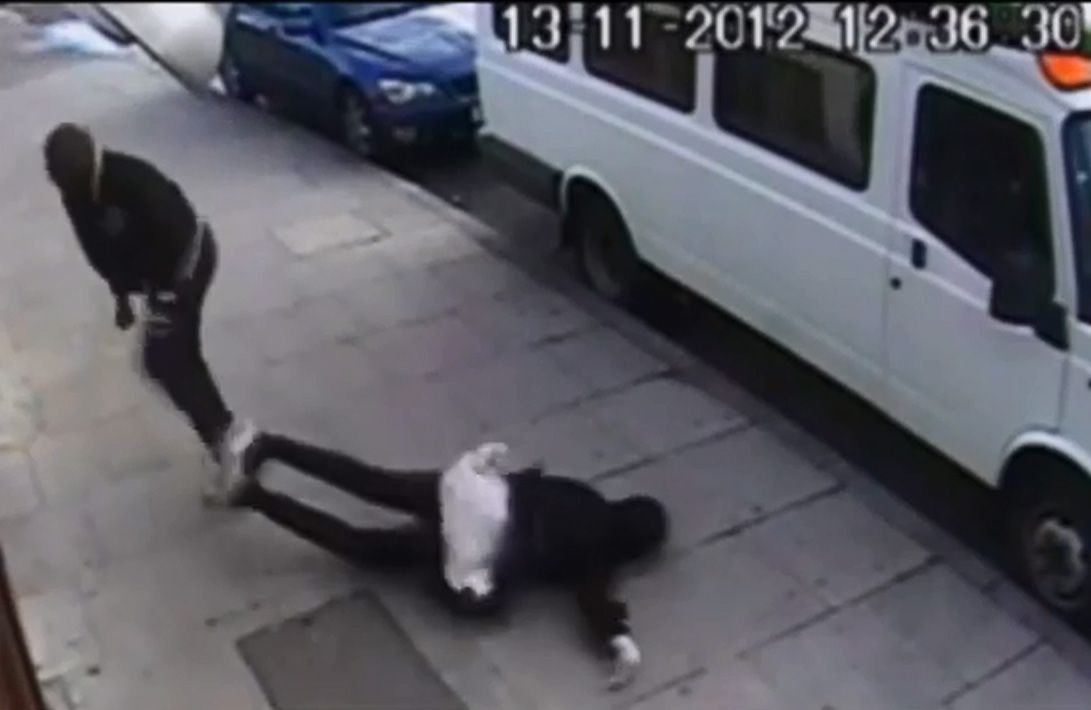Is the 'Knockout Game' Real?

There's a terrifying craze that — if you believe the media reports — is sweeping the nation: the "knockout game," in which someone walks up to an unsuspecting person and punches them in the face or head, knocking them out cold with one blow.
Or, perhaps not: A growing number of sources have cast doubt on whether this so-called "craze" is actually a crime trend, or simply the news media manufacturing an urban myth out of a handful of isolated incidents.
Are people safe to walk the streets? Or are there gangs of bloodthirsty urban youths, minds numbed by years of violent video games, stalking pedestrians with the sole intention of punching their lights out? The answer probably lies somewhere in between. [Really?! 15 Urban Legends Debunked]
The sad fact of the matter is that despite years of declining crime statistics, violence remains a grim reality in many cities and towns. New York City had more than 31,000 aggravated assaults in 2012, while Chicago reported more than 12,000 for the same period, according to the FBI. Even smaller cities like Toledo, Ohio, and Birmingham, Ala., reported more than 2,000 assaults in 2012.
Video evidence
The existence of knockout crimes can't be denied, since they have been captured on video several times: Security cameras in Pittsburgh, New York City, London and other cities have proven that there are people who will approach total strangers with the sole purpose of punching them in the face — no theft is involved, and the assailant simply runs away after delivering the blow.
And this type of aggression can be deadly: In September, 46-year-old Ralph Santiago of Hoboken, N.J., was killed in such an assault, according to CBS New York. And a 13-year-old boy in Syracuse, N.Y., was recently sentenced to 18 months of confinement after playing knockout with a group of friends. When the youth's punch failed to knock out a 51-year-old man, an older teenager joined in the game, delivering a punch so severe it caused bleeding in the man's brain — he eventually died.
Sign up for the Live Science daily newsletter now
Get the world’s most fascinating discoveries delivered straight to your inbox.
But do these incidents signal a nationwide crime trend? "No, if the word 'trend' implies some degree of increase," said Jeffrey Butts, director of the Research & Evaluation Center at the John Jay College of Criminal Justice in New York City.
Appealing to 'our lizard brains'
"The media coverage has been increasing, and at times, it seems that the number of incidents is growing, but this is mainly because reporters are going back to collect and describe events from past years," Butts told LiveScience.
Indeed, references to a knockout game have existed as far back as 1992, according to The Associated Press, which attributed the death of an MIT student in Cambridge, Mass., to the knockout game. Collecting every reference to the issue over the past two decades could yield enough data to call the knockout game a "growing trend."
A large part of the reason for the recent alarm over the knockout game is the visceral terror that comes from watching violent videos of the game. "This is precisely the type of story meant to animate the deepest recesses of our lizard brains," said columnist Emma Roller in Slate.
And as these compelling videos get shared online, the incidents appear to multiply: "YouTube has a lot to do with it," Butts said in an interview on WNYC. [The 10 Most Successful Viral Videos Ever]
Hate crimes?
There are some media critics who claim videos of knockout violence could in fact help fuel incidents of the crime, but Butts refutes this: "The media are never responsible for how people behave, but there is definitely a risk that repeated exposure to videos of assaults could gradually diminish their shock value," he said.
There are also some commenters who claim these attacks are targeting certain groups, particularly Orthodox Jews, though Butts claims any pattern indicative of a hate crime in the scattered incidents of knockouts is difficult to discern.
The racial element in recent media coverage may be made more complex by reports presenting young black males knocking out older white people, leading a few (primarily conservative) media outlets to show this as a strictly black-on-white crime.
"The pattern of assaults depends on the neighborhoods and social contexts of offenders and victims," Butts said. "There is no evidence that these assaults are motivated by racial, ethnic or religious animosity, although this conclusion could change."
Follow Marc Lallanilla on Twitter and Google+. Follow us @livescience, Facebook & Google+. Original article on LiveScience.












